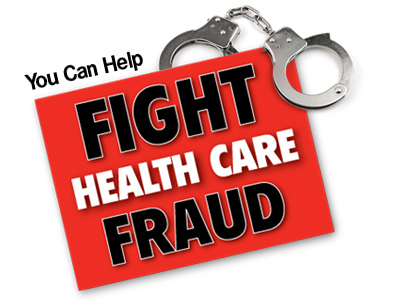Last year, a record breaking 4.5 billion is recovered in cases of healthcare fraud, which includes doctors, nurses, and many healthcare providers from many cities. Fraud is a pricey five letter word. In case of medical billing and coding, your genuine mistake could lead to a situation that could put you, your provider at risk for investigation of healthcare fraud and abuse. To avoid being the recipient of investigation, it is imperative to comprehend the nuts and bolts of fraud and abuse. It is an offense to defraud the Federal Government and its programs. The punishments in case of violation may involve imprisonment, significant fines, and cancellation of license of providers and health care organizations. Moreover, fraud and abuse can also expose you and your organization to civil and criminal liability.

Difference Between Fraud and Abuse
According to the Centers for Medicare & Medicaid Services (CMS):
Medicare Fraud refers to making false statements or misrepresenting facts to obtain a benefit or payment that would not otherwise exist. A person’s may commit fraud for its own benefit or for the benefit of some other party. This sham ranges from individual to vast operations by an institution or group. According to CMS anyone can commit health care fraud. And if you know someone who has committed fraud, you can always report it and be a whistleblower.
Examples of Medicare fraud – Billing for services and/or supplies that you know were not furnished or provided; and Altering claims forms and/or receipts to receive a higher payment amount.
Medicare Abuse refers to any action that, either directly or indirectly, results in unnecessary costs to the Medicare Program. It covers any practice that does not provide Medicare beneficiaries with services that are medically necessary, fairly priced, and meet professionally-recognized standards.
Examples of Medicare abuse:
- Misusing codes on a claim,
- Charging excessively for services or supplies, and
- Billing for services that were not medically necessary.
Statutes And Laws that Address Fraud and Abuse
There are five main laws that address fraud and abuse and protect the integrity of Medicare and Medicaid. The violation of any of these laws and statute can result in nonpayment of claims and civil monetary penalties (CMPs).
They are,
- The False Claims Act – The act protects the Federal Government from being overcharged or sold poor quality goods or services. The FCA imposes civil and criminal liability on any person or organization who knowingly does the same.
- The Anti-Kickback Statute – The act makes it crime to knowingly offer, pay, or receive any remuneration to induce or reward referrals of items or services reimbursable by a Federal health care program.
- Physician Self-Referral Law (or Stark Law) – The law forbid a physician from making a referral for certain designated healthcare services to a person/or organization in which the physician has a direct or indirect ownership with which he or she has a compensation arrangement.
- The Social Security Act and U.S. Criminal Code – The act prohibits the disclosure of certain information to protect the integrity of Social Security beneficiaries and the general public. It prescribes criminal penalties for violation of its provisions concerning fraud.
It’s imperative to identify the triggers of healthcare fraud and abuse to keep your practice away from violations. There are some dishonest healthcare providers out there who exploit the system for personal gain and because of which the laws are created to combat fraud and abuse and ensure appropriate quality medical care.